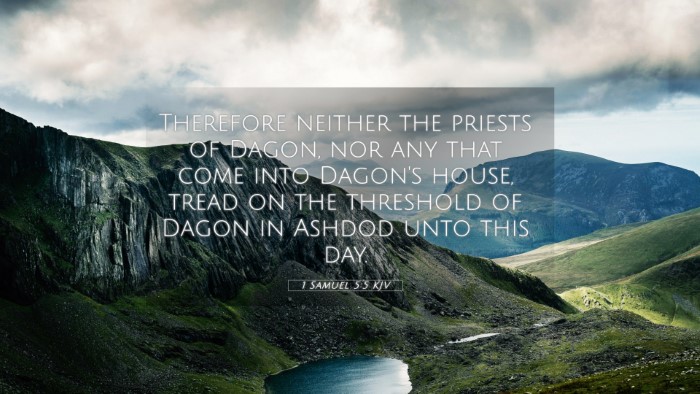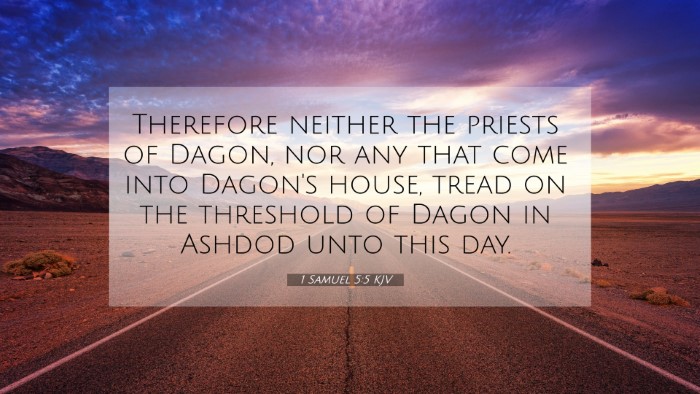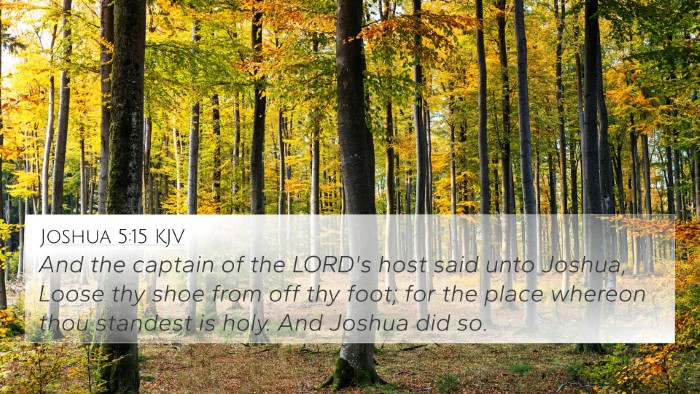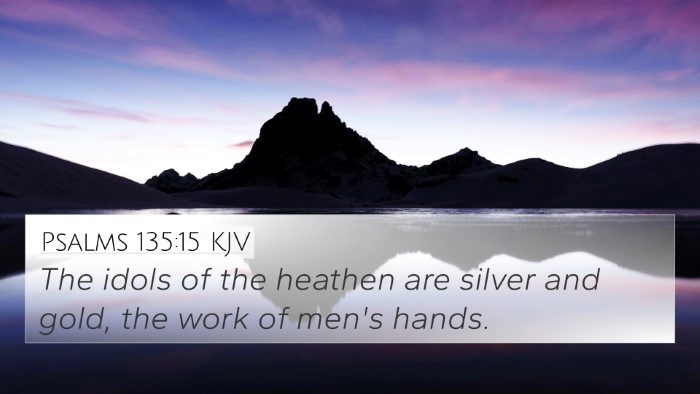Understanding 1 Samuel 5:5
1 Samuel 5:5 states, "Therefore neither the priests of Dagon, nor any that come into Dagon's house, tread on the threshold of Dagon in Ashdod unto this day." This verse encapsulates a significant moment in the biblical narrative where the power of the true God contrasts sharply with the impotence of idol worship.
Context and Interpretation
The verse occurs after the Philistines captured the Ark of the Covenant. Dagon, the fish-god of the Philistines, was placed next to the Ark, illustrating the clash of two belief systems. The subsequent events highlight that despite their attempts to honor Dagon, the idol is repeatedly humbled before the Ark of the Covenant, demonstrating God's supremacy.
Theological Insights
- Supremacy of God: The verse emphasizes God's dominance over false idols. The act of the priests and the people avoiding the threshold signifies their recognition of Dagon's defeat.
- Symbolism of Threshold: In ancient cultures, thresholds often symbolized the transition between realms, and here it represents the power struggle between the God of Israel and Dagon, showing the divine authority that prevents Dagon from standing.
- Idolatry's Consequences: The avoidance of the threshold serves as a reminder of the futility of idolatry and the consequences of turning from the true God.
Commentary Insights
Matthew Henry writes that this verse illustrates how God can humble the proud. He notes that the Philistines’ worship of Dagon is foolish in light of what happened. Similarly, Adam Clarke emphasizes the danger of idolatry and how ancient practices could lead the faithful away from true worship. Albert Barnes reflects on how this act became a cultural norm among the Philistines to remember the humiliation of their god.
Cross-References
1 Samuel 5:5 is connected to several other Bible verses that amplify its themes. The following cross-references are essential for a comparative analysis:
- Exodus 20:3-4: God's command against idolatry.
- 1 Kings 18:26-29: The contest between Elijah and the prophets of Baal.
- Psalm 115:4-8: The futility of idols and the glory of God.
- Isaiah 46:1-2: The helplessness of idols.
- Matthew 12:20: Jesus’ humility contrasted with the strength of God.
- Philippians 2:9-10: Highly exalting Christ, a parallel to God’s supremacy.
- Revelation 19:20: The ultimate defeat of false gods at the end of times.
Conclusion
The weight of 1 Samuel 5:5 can be understood through its historical significance and its timeless message about the folly of idolatry. Through a comprehensive bible cross-reference system, one can explore similar themes of divine supremacy and the ineffectiveness of false gods throughout scripture. For those engaging in cross-reference Bible study, this verse serves as a pivotal point illustrating the contrast between earthly idols and the eternal God.
Reflective Questions
- What does this verse teach about the nature of God in contrast to idols?
- How does understanding the cultural practices of the Philistines enhance our interpretation?
- In what ways can we see modern parallels to idolatry?
- How can this understanding influence our worship practices today?
Tools for Further Study
To delve deeper into the meanings of biblical texts and their interconnections, consider the following tools for Bible cross-referencing:
- Bible concordance: A useful resource for locating specific keywords and themes.
- Bible cross-reference guide: Provides insights into related verses.
- Comprehensive Bible cross-reference materials: Helpful for extensive study projects.






